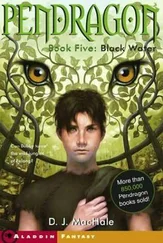He was silent for a while then and Harper thought, he is adding up all he has to lose. His family will have farmed this land for generations: it is almost inconceivable that he could leave. Should he stay in the hope that he will be able to protect it, or pack a few things and take his wife and his children to Denpasar? What will he be in the city? A street cleaner? He has friends in this village. How could he imagine, as he sat here on his own veranda, with the golden light in the fields that his friends and neighbours down the road might advance up the rise with sickles and machetes in their hands?
He looked at Komang and could see the struggle going on behind the man’s quiet face. When you belonged to a community, you felt at home, you felt safe. If he was Komang, he would hide at night at least. He would have a place out in the rice fields, a culvert of some sort, overgrown, somewhere that looked like a disused store perhaps, and as soon as it got dark each night, he would take his wife and children out there and tell them to stay there until well after daybreak. They would have to be sworn to secrecy — but the children might gab to their friends. What then? And he wasn’t Komang, of course. Komang would never leave his home empty and unprotected.
Eventually, all Komang said was, ‘My house. . this village. .’ He fell silent again.
‘I know,’ Harper replied quietly, after a while. ‘I am sorry. Komang, you must not talk to anyone, even your family members, and especially not your brother. You must make your own decision and then act. Do it soon.’
‘How soon, in your opinion?’
‘Days, not weeks. I don’t like the feel of things round here. If it was me, I’d leave immediately.’
Komang looked at him then; stared.
He walked back down the rise and turned into the lane that led to the village square. Two elderly women were in front of him carrying long bundles of branches on their heads, swaying in unison. Wayan was waiting at the end of the lane, next to the motorbike, squatting on his heels. A couple of local men were standing over him. ‘Where are you from?’ — the questions would be light enough. A few bats flitted in the trees. The gold light had diminished to grey: dusk was falling swiftly. Harper considered attempting the roads in the dark but it would make more sense to stay local — the other villages he needed to visit were north of here. Komang had offered him his home for the night but Harper knew it was best to leave the man to make the necessary decision and preparations.
As the local men saw Harper approach, they smiled but didn’t stay to speak to him, turning and wandering off. Wayan got to his feet, brushed at his trousers.
They took lodgings in the home of a local elderly woman: Wayan had asked around and found them a house with some food in it. They ate with the family, cross-legged on the floor, the children rendered silent by their presence. They drank sweet tea, then retired. Harper and Wayan were sharing the day bed in the open area of the compound, partially screened by a large cloth hanging from a line while a black pig snuffled around their feet. The elderly lady handed them each a sarong and doused the single paraffin lamp hanging from the line. It was pitch dark.
He was woken by a short shout — and was instantly, fully awake, the kind of sharp awakening a person has when something inside them has apprehended threat even though the conscious part of the brain is slow to catch up. It was completely black. He sat upright and then moved into a crouching position on the bed. Next to him, Wayan was awake too. He whispered the question, ‘Sir?’
Harper held up his hand for Wayan to be silent even though it was too dark for him to see. He blinked a couple of times and, as his eyes adjusted, saw there was an orange gleam to the left of his vision, through the stone entranceway that led out of the compound and onto the street. ‘Stay here,’ he whispered, then rose from the day bed — he had slept fully dressed this time and with his money belt still strapped inside his shirt — and crept to the doorway.
There was a large group of men in the street. Some of them had flaming torches, a couple were holding paraffin lamps aloft. Here and there, he could glimpse a disembodied face looming in the dark, appearing out of nowhere and disappearing again as the light swung away. Then the group was gone, melting into the dark. Harper stood for a minute, listening in the direction in which the group had departed: north, up the rise. There was the sudden, brief barking of dogs from a compound further up the hill, a whimper, then silence.
They could take another route to Komang’s house: Abang had told him, ‘You can either approach through the village, that’s the short way, you can do it on foot, or you can ride on the moped on a track through the fields, but then you’ll have to leave Wayan with the moped in the middle of the fields and he won’t like that.’ Many Balinese thought spirits lived in the water, the Invisibles. Tonight, he thought, they are probably right.
He stepped back into the compound and hissed to Wayan, ‘Start the moped.’ Abang had drawn a sketch of the paths and tracks around the village in Harper’s notebook and Harper’s visual memory was good, but he wasn’t sure whether he would be able to find his way in the dark.
As he returned to the day bed to pick up his bag, he fumbled in his pocket for his cigarette lighter, flicking it and holding it up so that he could see Wayan’s face, both rictus and blank. ‘We should stay here, sir?’ he said.
‘We can’t,’ Harper replied. ‘It’s not safe.’ This was not true. He doubted very much the men would come for him and Wayan, they would be too anxious that his status was unconfirmed, that he might be too important to kill.
Wayan would not start the moped for him unless he thought it was more dangerous to stay in the compound than go out into the night, so Harper repeated, ‘It’s not safe here, the men will come here. We have to go round a back route. I will direct you.’
The noise of a moped engine: so ubiquitous in the day you hardly registered it, yet a cacophony in the dark. It would alert the men to the fact that someone else was on the move — but he and Wayan would be riding on a different path, a circuitous route. Wayan’s hand shook as he tried to turn the key and for a moment Harper wondered if he should have left the man behind and taken the moped on his own. Then the engine let loose with its small ascending growl, Wayan kicked the machine into life and Harper swung his leg over. ‘To the end of the road, then left,’ he said in a low voice, in Wayan’s ear. ‘Be careful, go slow, stay in the middle.’ They couldn’t afford to end up in a ditch in the dark.
They turned left up the track that wound round the village. Gripping the seat with his knees, he held his cigarette lighter out and flicked it once in a while to illuminate the track, letting it die, then flick, die then flick. Each time, he saw no more than a few feet ahead, the mud track, the bushes either side, the shadow that the motorbike and its two riders cast, like that of a strange beast.
After what seemed like a very long time, they had crested the rise and bumped slowly along another track until it narrowed and disappeared. This, if he had calculated correctly in the dark, was the edge of Komang’s far field. Harper whispered in Wayan’s ear, ‘Kill the engine.’
There was an odd aural illusion then, as the engine died: he thought for a minute or two that there was total silence around them, only to find that as his hearing adjusted to the lack of engine sound, the night noises of the open fields rose up from the water, the click and sing of insects, the hum and shimmer of it.
‘Sir?’ asked Wayan and Harper put his hand on his shoulder to quiet him.
Читать дальше












